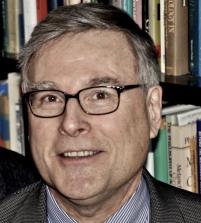Faith and Flew
Atheism seems under revision
Atheism seems under revision. For the masters of suspicion, religion was nihilistic will-to-power (Nietzsche), class ideology (Marx) or expressions of repression (Freud). Modern science from Bacon through Darwin to the socio-biologists has revoked the idea that God helps explain the origin and development of the world. Of course, the secular world never really arrived. And surprisingly, the certainty of scientific criticism now seems shaken by the critics themselves.
The revision in the criticism of theism has come from an unexpected source. British philosopher Anthony Flew, who taught at Oxford, Aberdeen, and Reading Universities, made his name in the middle of the last century around debates about how to verify or falsify arguments. He insisted that religious beliefs cannot meet scientific tests of validity and therefore have no rational grounds for assent. And so he argued for decades. The Chicago Sun Times reports that Flew, age 81, has changed his mind. Investigation into DNA has, he claims, "shown, by the almost unbelievable complexity of the arrangements which are needed to produce [life], that intelligence must have been involved." The emergence of life backs scientifically the rationality of the idea of "God." Flew quickly noted that his "God" is more of a deistic version than traditional theism, an intelligence or first cause rather than a personal God. As the Sun Times reports (12/10/04), Flew mused that "I'm thinking of a God very different from the God of the Christian and far and away from the God of Islam, because both are depicted as omnipotent Oriental despots, cosmic Saddam Husseins." Flew's God is about intelligence, purpose, and design but "utterly uninvolved in the lives of human beings."
Some religious believers, theologians, and philosophers will take delight in this admission (maybe repentance) of an ardent old atheist. Advocates of creationism, rational design, or versions of process theology will chuckle, "We told you so." The cottage industry of religion and science will have more papers to publish, better to get tenure. Church boards and ecumenical working groups will continue, rightly, to align religion and the (post)modern world. At last, Flew and Faith, science and religion, agree that the complexity of life demands some origin in intelligence and purpose not involved in people's lives. These are important claims and genuine advances in understanding. Let the papers be published!
Yet before one rushes to join the triumph of theism, one ought to ponder how little Professor Flew is saying. First, he grants philosophers and scientists the possibility of changed minds and so growth in understanding, even to the point of rejecting earlier judgments. Yet the possibility of growth in religious understanding is never admitted. While in the distant past monotheistic faiths drew images of divine sovereignty from prevailing cultural forms, it is hardly the case that the "Religions of the Book" remain fossilized in their conceptions of God. Believers must insist that there is deepening of religious insight and, further, that genuine faith reflects and empowers that growth. Faith seeks understanding. Does anyone really believe that the God to whom they pray is a cosmic despot? Is that what the theistic traditions are claiming when ideas about human equality and rights press for recognition? Flew denies advances in any sphere of mind other than science and philosophy, a denial that makes his endorsement of "God" a narrow thing in the traffic of human ideas.
There is a more troubling fact about Professor Flew's theism. Flew apparently endorses theoretical theism arm in arm with practical atheism. By practical atheism Jews and Christians and Muslims mean the belief that God is "utterly uninvolved in the lives of human beings," and, thereby, indifferent to love, justice, mercy, and the striving for goodness. This is not a God worthy of worship, but simply an explanatory item in the philosopher's bag. The moral orientation of human life is uncoupled from beliefs about the shape of reality. Alas, there has not really been much change in the atheistic story.
Believers must show that growth in understanding God comes precisely with the insight that matters of love, justice, and mercy are at the core of the human project. Explanations of DNA are to be sought and treasured; they provide limits on plausible claims about God's interactions in the world and aid in grasping the meaning of the integrity of life. Yet removed from the labor of justice and love, these scientific conclusions are hardly the stuff that brings forth lives worth living. It is better to endorse theoretic openness, even skepticism, bound to a practical, living faith. Yet in making that point, believers ought not to cling to false consolation. There is religious, practical work to be done. People of good will must struggle to live the truth of convictions about God, goodness, and justice lest images of cosmic tyrants once again fuel human discord.
William Schweiker is Professor of Theological Ethics at The University of Chicago Divinity School and in the College.


